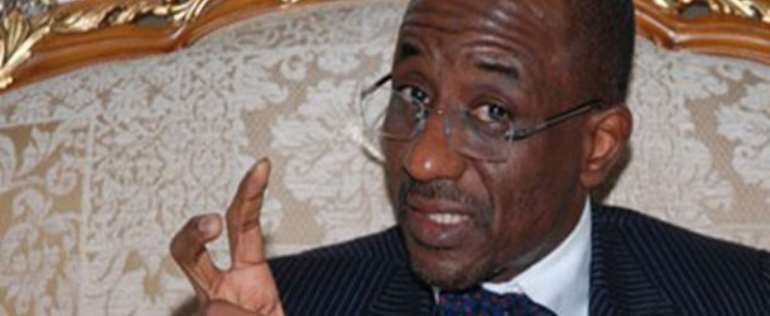CBN Governor: I Don't Need Second Term

Governor of the Central Bank of Nigeria (CBN) Sanusi Lamido Sanusi in an interview with the London-based Banker Magazine said if he completes his assignment at the apex bank, he would not seek a second term in office come next year, adding that he is a crises central banker.
Sanusi said critics of his tight monetary policy had forgotten how unstable the nation's financial system was just three years ago.
'I will not be offering my services for a second term. The job is extremely demanding. I don't think it's something that I would like to do for 10 years. I also think I have certain skills and a temperament that are suitable for a certain phase. I'm a crisis central banker. I came at a time of crisis.
'I consider my job to have been to fix the crisis and restore stability, and to make sure we did that in such a way that no bank failed, no depositor or creditor lost money and fiscal costs (were minimised), which is why we tried to get the banks themselves to bear the costs,' the CBN governor told the magazine.
The response read: 'You can check the Banker Magazine yourself. Maybe the interview is on The CBN governor said there had been a transformation from banks merely buying government bonds and funding blue-chip companies to now focusing on what he calls 'the middle part of the economy, where growth happens and jobs are created.'
This middle part of the economy involves industries such as agriculture and manufacturing, which have long been neglected by lenders.
'The DNA of the entire sector has been changed,' he said.
'If you spoke to the bank CEOs, you would find a shared understanding that the banking industry needs to return to its raison d'être, which is to be an intermediary of savings into the real economy.
'We're not where we want to be. But the days when banks shied away from or didn't see this as a core function are gone.'
He told the magazine: 'Banks' ability to diversify their portfolios depends on a number of things,' he said. 'You can't get them to lend to the manufacturing industry if manufacturers aren't viable because there's no power, security or infrastructure.'
According to him, Nigeria's macroeconomic indicators would be the envy of most countries - real gross domestic product (GDP) is set to rise by more than 6% this year, it has a current account surplus equivalent to about 8% of GDP and its debt-to-GDP ratio is less than 20%.
But Sanusi said such figures are doing little to reduce poverty in the country. 'We shouldn't get carried away by a 6% headline [growth] figure,' he said. 'If the economy is expanding at 6% and the population at 2.5%, how much are you really growing on a per capita basis? A lot of that growth is also one in which you have huge inequalities in income. It's not growth that lays the foundation for social and political stability.'
He warned, moreover, that Nigeria can no longer take high earnings from crude exports for granted.
'You can't have a situation in which growth is driven by a rise in commodity prices,' he said.
'We've had strong oil prices and good output. But given what's happened with the shale oil finds in the US and that country's increased energy independence, and given the new oil finds across Africa, the outlook for oil growth is very weak.'
Crucially, however, he says the government's fiscal management has been far better since Ngozi Okonjo-Iweala became finance minister in July 2011, particularly when it comes to reining in recurrent expenditure.
'From the time Ms. Okonjo-Iweala came on board, there has been significant improvement,' he said, adding, 'We (the central bank and finance ministry) have been speaking the same language. And you can see the results.
'With our monetary and fiscal policies, we have provided macroeconomic stability. But stability is not an end in itself. We need to take advantage of it and push forward with structural reforms. If we can do that, then we could easily reach double-digit growth and make it sustainable.'
